Press Release
« Back
TG Therapeutics Announces Phase I Data Presentation for TG-1701, a Once-Daily BTK Inhibitor, as a Single Agent and in Triple Combination with Ublituximab and Umbralisib (U2), at the 61st American Society of Hematology Annual Meeting and Exposition
Dec 09, 2019
Proprietary triplet of U2 plus TG-1701 (BTK inhibitor) induced 86% ORR (6 of 7) in patients with relapsed/refractory
Single agent TG-1701 induced responses at multiple dose levels (including the lowest dose tested) across multiple B-cell diseases
TG-1701 demonstrates an encouraging safety profile to date, with dose escalation continuing for the combination with U2
Yesterday, TG announced positive early data from the combination of U2 plus venetoclax in an oral presentation at ASH (click here for PR)
Investor and analyst event to be held today,
Below are highlights from today’s poster presentation.
Poster Presentation: Phase 1 Study of TG-1701, a Selective Irreversible Inhibitor of Bruton's Tyrosine Kinase (BTK), in Patients with Relapsed/Refractory B-Cell Malignancies
This presentation includes safety information from 30 patients, 21 patients treated with single agent TG-1701, and 9 patients treated with the triple combination of TG-1701 plus U2.
- TG-1701, a once daily BTK inhibitor, demonstrates an encouraging safety profile to date, with clinical and pharmacodynamic activity at all dose levels evaluated
- 30 patients have been treated with TG-1701 at doses that ranged from 100mg to 400mg once daily for TG-1701 monotherapy; dose escalation continues in the triple combination arm
- Single agent TG-1701 produced partial responses at multiple dose levels (including the lowest dose tested) across multiple B-cell diseases, including mantle cell lymphoma (MCL), chronic lymphocytic leukemia (CLL), Waldenström's macroglobulinemia (WM), and small lymphocytic lymphoma (SLL)
- 86% (6/7) of patients treated with 100 mg TG-1701 plus U2 have achieved a response
• 4 patients with follicular lymphoma (FL): 2 Complete Responses (CR), 1 Partial Response (PR) and 1 Stable Disease (SD)
• 1 PR in marginal zone lymphoma (MZL); 1 PR in Waldenström's macroglobulinemia (WM); and 1 PR in diffuse large B-cell lymphoma (DLBCL) - All patients treated with the triple combination of TG-1701 plus U2 remain on study
ASH Poster Presentation Details
- Title: Phase 1 Study of TG-1701, a Selective Irreversible Inhibitor of Bruton's Tyrosine Kinase (BTK), in Patients with Relapsed/Refractory B-Cell Malignancies
• Publication Number: 4001
• Session: 623. Mantle Cell, Follicular, and Other Indolent B-Cell Lymphoma—Clinical Studies: Poster III
• Date and Time:Monday, December 9, 2019 ;6:00 PM - 8:00 PM ET
• Location:Orange County Convention Center , Hall B
• Presenter:Chan Cheah , MD,Sir Charles Gairdner Hospital ,Hollywood Private Hospital ,University of Western Australia , Blood Cancer Research Western Australia
Below recaps highlights from yesterday’s oral presentation of U2 plus venetoclax.
This oral presentation includes data from patients with relapsed or refractory CLL treated with the triple combination of ublituximab, umbralisib, and venetoclax. Twenty-seven patients were evaluable for safety and 23 were evaluable for efficacy. Data highlights include:
- Regimen was administered with 3 cycles of U2 induction/debulking to reduce the risk of tumor lysis syndrome (TLS), followed by the combination of umbralisib and venetoclax starting in cycle 4. Patients who were bone marrow MRD negative after cycle 12 stopped all therapy.
- Overall response rate (ORR) of 87% (20/23) after U2 induction period at cycle 3, prior to introduction of venetoclax, in relapsed/refractory CLL patients, including patients refractory to ibrutinib
- U2 induction appeared to reduce venetoclax TLS risk, with no patients remaining as TLS high-risk following 3 cycles of U2
- 13 patients treated for >7 cycles and 9 patients for > 12 cycles:
• 100% ORR (13/13) after cycle 7 for the triple combination
• 100% ORR (9/9) including 44% Complete Response (CR) after cycle 12 for the combination
• 100% (9/9) of patients had undetectable minimal residual disease (MRD) (<0.01%) in peripheral blood after 12 cycles of therapy; and
• 78% (7/9) of patients who completed 12 cycles of therapy had undetectable MRD in bone marrow and have stopped therapy - No patients (n=27) have progressed to date with a median follow-up of 6.4 months
- Triple combination was generally well tolerated with no events of TLS observed
An open-label, multicenter, Phase 2 study evaluating U2 plus venetoclax (ULTRA-V) in treatment naïve and previously treated CLL is now open for enrollment.
All data presented is available on the Publications page of the Company’s website at https://www.tgtherapeutics.com/publications/.
TG THERAPEUTICS INVESTOR & ANALYST EVENT
ABOUT
TG Therapeutics is a biopharmaceutical company focused on the acquisition, development and commercialization of novel treatments for B-cell malignancies and autoimmune diseases. Currently, the company is developing two therapies targeting hematological malignancies and autoimmune diseases. Ublituximab (TG-1101) is a novel, glycoengineered monoclonal antibody that targets a specific and unique epitope on the CD20 antigen found on mature B-lymphocytes. TG Therapeutics is also developing umbralisib (TGR-1202), an oral, once-daily inhibitor of PI3K-delta. Umbralisib uniquely inhibits CK1-epsilon, which may allow it to overcome certain tolerability issues associated with first generation PI3K-delta inhibitors. Both ublituximab and umbralisib, or the combination of which is referred to as "U2", are in Phase 3 clinical development for patients with hematologic malignancies, with ublituximab also in Phase 3 clinical development for Multiple Sclerosis. Additionally, the Company has recently brought its anti-PD-L1 monoclonal antibody, TG-1501, its covalently-bound Bruton’s Tyrosine Kinase (BTK) inhibitor, TG-1701, as well as its anti-CD47/CD19 bispecific antibody, TG-1801, into Phase 1 development. TG Therapeutics is headquartered in New York City.
Cautionary Statement
Some of the statements included in this press release may be forward-looking statements that involve a number of risks and uncertainties. For those statements, we claim the protection of the safe harbor for forward-looking statements contained in the Private Securities Litigation Reform Act of 1995. In addition to the risk factors identified from time to time in our reports filed with the Securities and Exchange Commission, factors that could cause our actual results to differ materially are the following: our ability to successfully and cost effectively complete preclinical and clinical trials; the risk that data from the UNITY-CLL Phase 3 trial will not be available in the planned timeframe or not be sufficient to support a regulatory filing; the risk that the highlighted early clinical trial results, that may have supported the acceptance of our data for presentation or influenced our decision to proceed with additional clinical trials, will not be reproduced in future studies or in the final presentations; the risk that the combination of ublituximab (TG-1101) and umbralisib (TGR-1202), referred to as U2 and being studied in the UNITY clinical trials, will not prove to be a safe and efficacious combination, or backbone for triple therapy combinations; the risk that the combination of U2 plus venetoclax will not prove to be a safe or efficacious treatment and will not warrant further testing; the risk that the combination of U2 plus venetoclax will not ultimately result in a time limited therapy; the risk that the combination of U2 plus venetoclax, if approved, will not be utilized broadly or at all by academic or community physicians; the risk that the preliminary results for TG-1701 will not be reproduced in additional data sets; and the risk that future results from the combination of U2 plus TG-1701 will not be comparable in safety, efficacy, or both, to the early results presented or to those results previously seen with the combination of U2 plus ibrutinib. Any forward-looking statements set forth in this press release speak only as of the date of this press release. We do not undertake to update any of these forward-looking statements to reflect events or circumstances that occur after the date hereof. This press release and prior releases are available at www.tgtherapeutics.com. The information found on our website is not incorporated by reference into this press release and is included for reference purposes only.
CONTACT:
Senior Vice President,
Corporate Communications
Telephone: 212.554.4351
Email: ir@tgtxinc.com
Source: TG Therapeutics, Inc.




